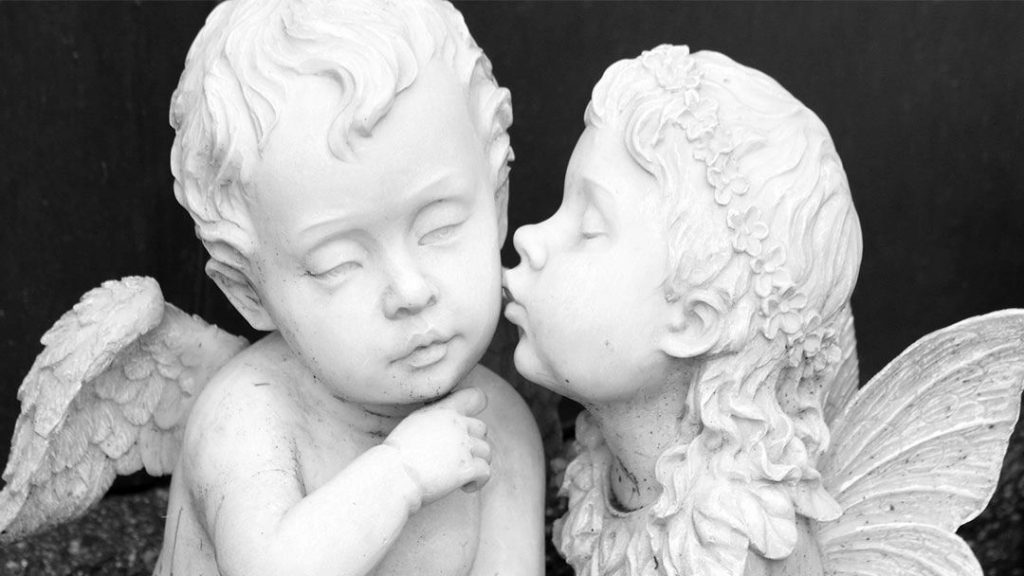Childhood Abuse and Adulthood Sexuality
This topic is a really heavy one and although I would love to talk about the abuse I have been through during childhood, I doubt it would be much to my benefit, or anyone else’s. Some things are better kept at a general level. I was emotionally, sexually and physically abused as a child, from about age 3 to age 11. The abuse I went through after that wouldn’t be exactly classed as childhood abuse. I think what is really important to note when it comes to child abuse is that it doesn’t leave you. Instead it catches up with you later in life, even if you managed to push it away most of your life.
It will not leave you alone. It influences almost every decision you make later in life, it has a huge impact on how you see yourself, others, and the world around you. And more likely than not, you will have to deal with a mental illness related to it, a trauma disorder or a dissociative disorder.
Now, it is quite confusing that it does that, because we might not even think about it. You maybe can’t even remember it, or you have pushed it away so far into your mind that you are able to deny that anything ever happened. But your behaviour reflects it, your choices of partners reflects it, your hypervigilant state, your inability to trust other people on a deeper level. And the sad thing is that you are often not aware of it, instead you blame yourself for making wrong decisions, for ending up with abusive partners.
You subconsciously reenact your trauma, you subconsciously either have the need to get hurt or you want to do it better this time. You get attracted to the narcissists, the abusive types, the ones that can sense that you have been conditioned to please, to be afraid, to take and not need. And as the urges are subconscious, you are not aware of them at all and you might end up just blaming yourself for messing up your life. But it catches up with you, the memories, the flashbacks, the pain from the past. However deep you have pushed it into the back of your mind, it will crawl back to the front again. Even if your brain has compartmentalized the trauma, you will remember. A trigger, a new trauma, stress. And you are supposed to deal with the reality of your past.
I think one of the areas that childhood abuse has a huge effect on is sexuality. I am not talking about sexual orientation (although, that might play a role too!) but more about how our approach to sex is very strongly influenced by the abuse in our past, and often in very extreme ways. There is hypersexuality, and there is asexuality. Some might become very sexual and some might not show any interest in intimacy and sex at all.
Hypersexuality
Hypersexuality is defined as a dysfunctional preoccupation with sexual fantasy, often in combination with the obsessive pursuit of casual or non-intimate sex; pornography; compulsive masturbation; romantic intensity and objectified partner sex. One important factor here is that the sexual needs never seem to be met. It doesn’t matter how much you pursue to get sexually satisfied, it will not happen. Hypersexuality can be a condition on its own, called sex addiction. But I want to talk about hypersexualty as a result of childhood trauma.
Sometimes, too, survivors find themselves locked in a pattern of sexual behavior. Their brains become compulsive about undoing the trauma, redoing it differently, or simply understanding it. Like biting on a cold sore or squeezing a pimple, the brain can’t leave the trauma alone, even though you know you’d heal faster if you could. The result is that the survivor has multiple partners, often following a habitual pattern, without feeling perfectly in control of the decision to have those partners. – source
Sex can become a compulsive thing and you might make a lot of unhealthy decisions, exposing yourself, choosing unsafe partners, indulging in dangerous sexual practices. There are a lot of risks, and it will not resolve your trauma.
For me personally, my hypersexuality has become an asset. For me it is a combination of behavious learnt during childhood and the physical need for sex (coming from my bipolar disorder). I am basically always ready to go. I love sex, I want crazy rough sex. But I also want intimacy, and hugs, cuddles and love. I know that my sexual behaviour is linked to mental illness, I am self-aware enough to be careful about making unsafe decisions (fortunately my partner helps me with that!), and I enjoy my sexuality. Do I get sexually frustrated because I don’t seem to be able to get enough? Sure! But I am still enjoying myself, in a safe framework. I don’t subconsciosusly making decisions that will lead to harm. I use my urges to have a rewarding sex life.
Avoidance of Intimacy and Sex
And then there is the other extreme: no sex at all. There are a lot of child abuse survivors out there who are not able to have sex, for whom sex is a tortureous exercise, who fear intimacy. It is often related to a hypervigilance around others, to flashbacks that occur in situations of an initmiate nature and the lack of trust in others. So there is an avoidance of sex instead of an overindulgance.
You might actually be okay with that and identify as asexual and aromantic. But you could also be very troubled by it, because your sexual urges might still be burning somewhere in you, together with a need for love and care. To be able to overcome that, a processing of the trauma might be needed and that could mean years of intense therapy. So many end up lonely and single for long periods of their life.
Child Abuse Survivors and BDSM
There are studies that show that there is not a huge overwhelming evidence that many of those engaging in BDSM are childhood abuse survivors. Still, I find it very interesting that there are not a lot of studies on how those who suffer from childhood abuse related mental illnesses are actually drawn to BDSM. I know I know. I need to say it out loud: just because you engage in BDSM doesn’t mean that you have been through childhood abuse and you are reenacting, and just because you have been through childhood abuse, doesn’t mean that you are into BDSM. I am not generalizing because that would simplify the issue. But what I am saying is that studies have mostly been focused on only one direction.
I know I am into BDSM because of the abuse I have been through. The hypersexuality, the need for the adrenaline rush of pain and humiliation, and degradation. The feeling of being used and objectified. It is all related to sticking with the familiar. I see the dangers of it, but I am constantly self-reflecting and self-evaluating, and communicating. I have the strong need for someone to guide me, and I know how to be obedient. I want care, I want attention. I need a father figure.
Hell yeah, I have daddy issues. I am owning it and saying: my needs are being met in a safe relationship. I am not suffering from following the urges. I am not getting retraumatized. But! Others might not be as self-aware, and there is a risk of ending up with an abusive Dom/me. Constantly re-evaluating one’s own choices and relationships is so very important!
Even those that are not interested in a sexual relationship, might look for a DD (Domestic Discipline) relationship, or someone who is willing to take care of them. There are definitely Doms and Dommes out there who are okay with a solely service relationship without a sexual side to it. And then there are DD/lg relationships where Daddy Doms and Mommy Dommes take care of littles, those that like to be in the role of a babygirl or babyboy (of different ages, it doesn’t have to be the diaper wearing kind).
There is a lot of stigma around that kind of dynamics. I personally engage in it sometimes, and I find it freeing. If something happens between two consenting adults, then we really shouldn’t judge. It is none of our business. And if the majority of those engaging in that dynamics have been through childhood abuse, or if many of those who have been through childhood abuse end up in a such a dynamics, well, I am waiting for further studies on it. I don’t think it is a bad thing, it could be a healing and rewarding connection as well.
Take control and be safe
Childhood abuse doesn’t stay in childhood. It follows you into adulthood and will continue to impact your life, greately. That is very terrible and can have devastating effects, especially on the areas of sexuality and intimacy. But it is about how you handle it, and how safe you are about it. Hypersexuality can hold many risks, but it can also be an asset, like it is for me. Avoidance of intimicay and sex can lead to a lot of frustration but it doesn’t have to be the end of the road. How strong and how accurate the link between BDSM and childhood abuse is, is something that needs to be further investigated. But it doesn’t necessarily have to be a bad thing, it can also be a healing process where you take control of your sexuality and you allow yourself to get your needs met in a safe space.
Also read this: Crazy Fucks Best – Making the Mentally Ill seem Sexually Deviant
Want to read more posts from sex bloggers on mental health? Click the link!












Thank you for writing this brilliant piece – being a survivor if sexual and emotional abuse as a child I can relate to this in so many ways. In fact you have enlightened me about a few things and I will have to look some stuff up as it certainly applies to me. One thing I really like about your article is you have drawn positives from your patterns of behaviours. That is so good you feel this way. I am a great believer that we should not be defined by the things that have happened to us – we should attempt to be stronger because of them.
Thanks for linking to the sb4mh site 😉
Thank you! I very much agree with you, we are more than what happened to us. In the end we are the people we decide to be. I am glad I was able to help you reflect a bit! <3
Well honey I agree BDSM is and has been my saving grace … Mine was 6 to 20… so there ya go x
I am sorry to hear that you have been through abuse as well. But it is good to hear that you found BDSM to be helpful too! <3
I thank you however, it made me who i am and i have no regrets in being me xx
Thank you for this piece.
To me, as a victim of emotional abuse during childhood, focusing on my fantasies, and my sexual fantasies was a perfect escape. I have now embraced this sexual side of me and actually feel like I’m flourishing 🙂
I’m in a safe, healthy D/s marriage and we’re exploring new kinks, like spanking and bondage.
We may both be damaged goods, but we’re helping each other grow.
Sex and BDSM can be very healing in many ways. I am sorry to hear that you have been through emotional abuse during childhood. It sounds like you are in a very positive relationship now and I wish you all the best of luck with exploring new kinks and enjoying your sexuality!